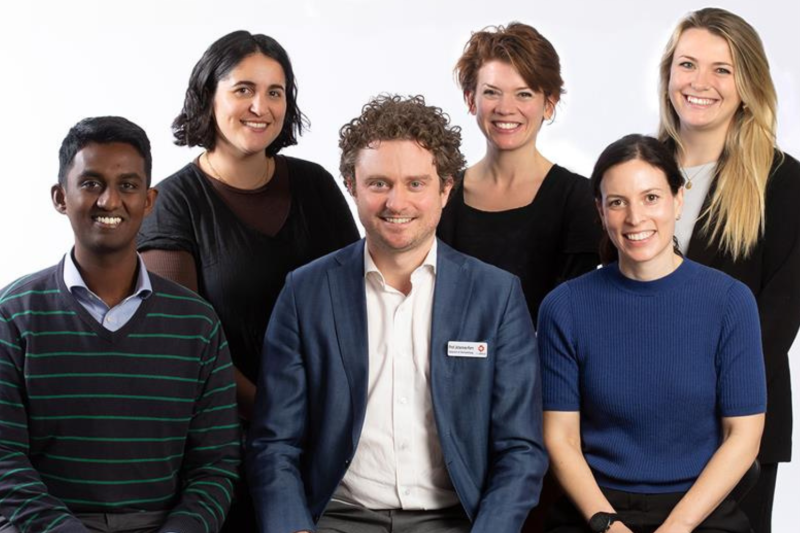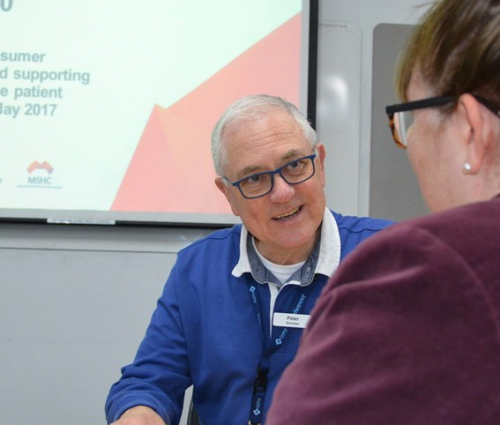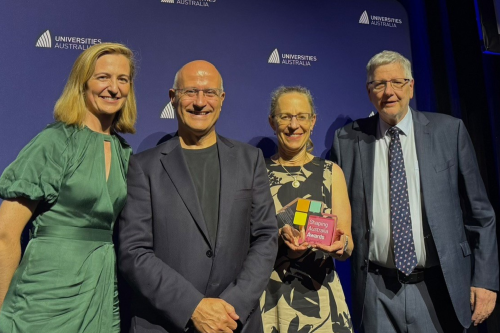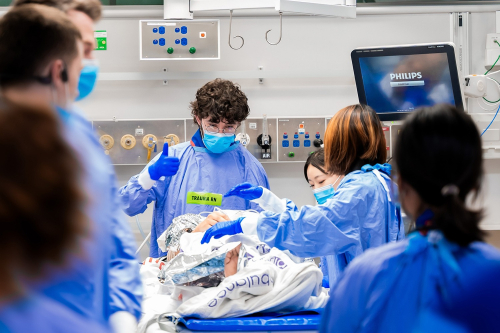Clinical trial giving new hope to eczema sufferers

For long term eczema sufferer David, living with the debilitating skin condition had become a painful way of life.
But a clinical trial at The Alfred has given him new hope.
At its worst, with almost 90 per cent of his body covered in the chronic dermatitis, David says it would feel like his entire body was severely sunburnt, with constant pain, itching and weeping making life unbearable without the relief of short-term corticosteroids, which came with their own side effects.
“Over the years I had tried everything – creams, medications, diets, bleach baths – you name it,” said David, who works part time at a regional hospital.
“Up until a few years ago it would come and go, but more recently it became constant and unrelenting. While I was on the corticosteroids, I could still function reasonably well if I moved about carefully, but I knew I couldn’t be on that medication forever.”
“Even when my body wasn’t flaring up, I was constantly exhausted. I could only wear certain types of clothing, I’d often be asked if I’d been in the sun too long, and I was constantly washing and cleaning my house because of the condition.”
When David’s body became non-responsive to stronger steroids, he worried there was nothing else that would help.
“I thought I’d run out of options and was panicking, knowing my short-term solution wasn’t working anymore.”
David’s next visit to his GP couldn’t have come at a better time, as the Gippsland local was introduced to a clinical trial for people with severe eczema, led by The Alfred and offered both in Melbourne and regionally.
The trial, which involves monthly visits to Latrobe Regional Health, and twice-yearly visits to The Alfred, is one of the first non-cancer clinical trials at Alfred Health offered by teletrial.
The teletrial model is supported by TrialHub and gives regional patients access to life-changing care.
Trial lead and Director of Dermatology at The Alfred, Prof Johannes Kern, says it is critical that regional patients have access to the same types of trials and care available in metropolitan cities.
“Working in partnership with local health services and removing the distance barrier is a crucial first step in delivering equitable access to care,” Prof Kern said.
“We know that sometimes it’s actually impossible for patients to take time off work or their caring responsibilities, make the day long trip into the city, get to the hospital and sit through their appointment, and then make it all the way back again, particularly if they’re not well.”
“To be able to show what’s possible now for other regional patients across Australia is a significant milestone.”
After a year of treatment, things have completely turned around for David, who was this trial’s first teletrial participant.
“When I started the trial I thought ‘I’ll just give it a go. If it doesn’t work for me, at least I’m helping someone in the future.’”
“Now my flare ups are few and far between and they resolve so much quicker with only a topical cream. The difference is significant, and to know I’m not reliant on steroid medication anymore is a relief.”
But for David, the benefits of the trial have extended beyond the health outcomes.
“Being on a trial has been the most illuminating process, and I’d recommend it to anyone.”
“Besides learning about the condition and the medication, I’ve learnt so much about the process - why and how data is collected, where it all goes, and what difference that information can make to future treatment for other people as well.”
Alfred Health is currently operating over 700 clinical trials with almost 7000 participants across a range of services, including cardiology, mental health, sexual health, oncology and neurology.


